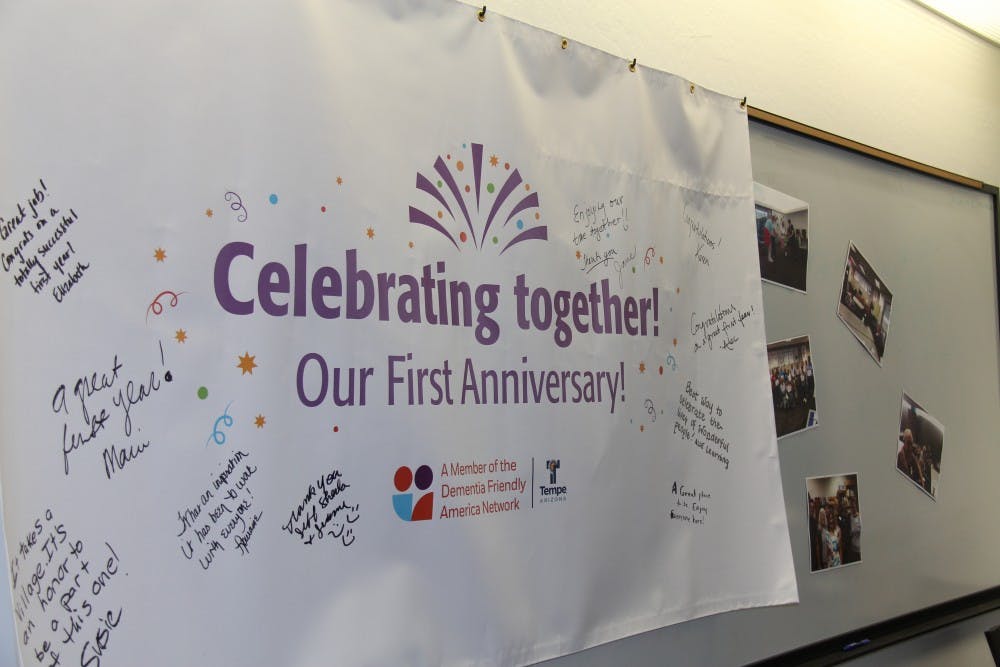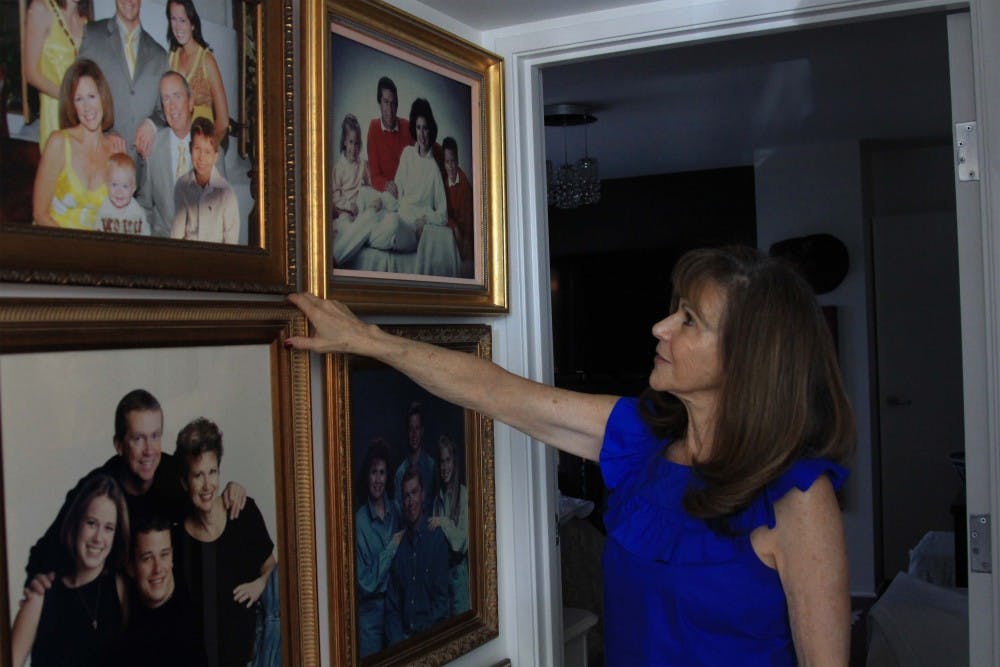On Sept. 11 Tempe Public Library was abuzz with people visiting with each other. With no background information, you might think the room was a birthday party for an old friend.
The celebration was not in fact for a birthday, but for the first anniversary of Dementia Friendly Tempe’s Memory Café: a place where those with dementia, along with their caregivers, can go to meet others in similar situations and gain support.
Tempe is the first city in Arizona to join the movement for Dementia Friendly America according to DFT’s website. The program began in Tempe when Mayor Mark Mitchell saw his mother struggling with the disease. He recognized the need for a more dementia friendly society.
Jane Gerlica, DFT’s outreach program manager and a graduate of ASU, sees how it helps all the participants.
“Every week, we meet here in the library and the people who have dementia, as well as their caretakers, come to socialize and learn a few things,” Gerlica says. “The support group side is a huge help for the caregivers because they learn from each other.”
Memory Café creates a place where those with memory issues can participate in activities that stimulate their brain.
“We want them to feel like adults, we want them to be talked to like adults, and we want them to have the opportunity to express themselves,” says co-developer of Alle Learning, Jennifer Clancy.
“It’s a safe place for people to come because everyone is in the same boat. There’s no judgment,” Gerlica says.
Gerlica explains that often, the well-being of the caregiver gets overlooked. Although most people who care for their loved ones wouldn’t trade their role for the world, they sometimes forget to pay attention to their own needs. This tendency can lead to the caregiver feeling isolated.
Susie Peck began coming to Memory Café after her husband passed away from Alzheimer’s. She says she put everything she had into her role as her husband’s caregiver, and at one point her children said to her they didn’t want to love another parent.
At first, she says, she wanted to run in the opposite direction of the disease, but soon realized the benefit of meeting others who had gone through a similar situation or were currently going through one. Peck is a strong voice for DFT and believes in the work that is being done.
“It’s important for society to realize that people who have dementia can still live a valuable life,” Peck says.
Peck pointed out that most people have been or will be touched by dementia some how in their lives. However, it is still important to be understanding.
“Just because you have someone in your family that may be affected by the disease doesn’t mean that you understand the role of the caretaker,” Peck says.
Jan Dougherty, special projects consultant with Banner Alzheimer’s Institute, has been with DFT from the beginning. She describes Banner being the “champion” in the collaboration that brings a lot of expertise to the organization.
“For those living with dementia, this has afforded them a place to come and be connected with others., Dougherty says. “They are with others who are affected and can develop new friendships.”
Dougherty says research for Alzheimer’s has changed drastically in the last decade. In fact, the ASU-Banner Neurodegenerative Disease Research Center is working on an early blood test to detect the disease before the symptoms are present.
Although research is advancing, Dougherty says we are still a few decades away from finding a cure she says. In this time, those affected by dementia and those who generously take the role of the caregiver will need support from all parts of the community.
DFT is putting forth an effort to create a society where the general population is much more educated on the topic of dementia and memory loss.
“We’re trying to educate.” Gerlica says. “We’re trying to train the banks, city employees, restaurants and more.”
She says that even when people recognize that someone may be confused and need help in a public place, they may not act because they are afraid they will do something wrong. This is largely the reason that citizens need education on how they can help.
The need for young people and students to have a better understanding of the disease is vital.
“Students would be so wonderful because regardless of what you’re studying, there will be a tie-in,” Gerlica says. “Young people have a fresh approach. We need to reach young people.”
Memory Café is not the only event held by DFT. They also hold informational lectures once a month open to anyone who would like to learn more about dementia and memory loss.
Gerlica stresses the importance of the community to understand and help those with the disease.
“It’s the really small things that make a difference,” Gerlica says.
Reach the reporter at lehart4@asu.edu or follow @lololicious97 on Twitter.
Like The State Press on Facebook and follow @statepress on Twitter.





